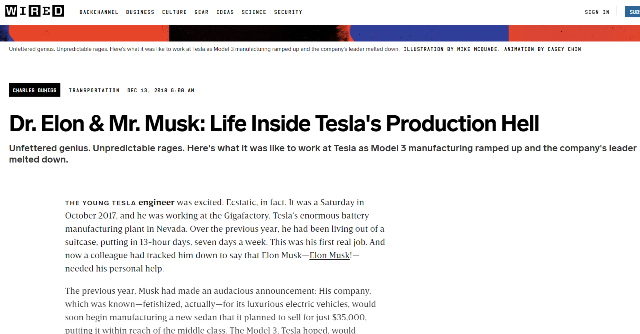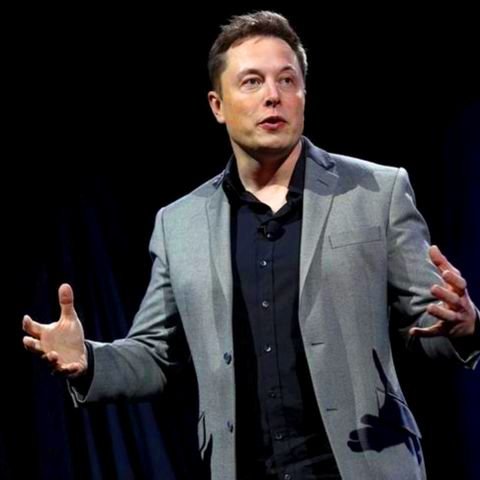Elon Musk is among the 25 richest people in the world, with a net worth valued at more than $37 billion. Between space rockets, electric cars, solar batteries, and the billions he’s made along the way, Elon Musk is the most successful and controversial man in tech basically a real-life Tony Stark.
Elon Musk is no stranger to controversy. The Tesla and SpaceX CEO has repeatedly made headlines for everything from smoking weed on Joe Rogan’s podcast to calling a British cave diver a “pedo guy” after he criticized Musk’s efforts to rescue 12 boys trapped in a Thai cave in June 2018.
But there’s one controversy that stands out above the rest.
It has to do with Musk’s Twitter presence, and it landed the billionaire in hot water with the U.S. Securities and Exchange Commission (SEC).
In 2018, Musk said he was considering taking Tesla private at $420 per share and that he had the “funding secured.” At the time the figure represented an 18% premium to the electric vehicle maker’s stock price, and it sent Tesla shares soaring.
Musk was charged with securities fraud for his “misleading tweets” in September 2018, with the SEC arguing that, in truth, Musk knew that the potential transaction was “uncertain and subject to numerous contingencies.”
“Taking care to provide truthful and accurate information is among a CEO’s most critical obligations,” Stephanie Avakian, the codirector of the SEC’s Enforcement Division, said at the time. “That standard applies with equal force when the communications are made via social media or another nontraditional form.”
The charges kicked off a feud between Musk and the SEC, and eventually led to an unusual settlement that allowed Musk and Tesla to walk away with just $40 million in penalties if he promised to step down as chairman of Tesla’s board, and have Tesla lawyers preclear a portion of his tweets and other public statements.
Since then, any tweets that may be material to Tesla’s stock have been required to go through Tesla’s legal team, although the SEC said in a 2019 SEC filing that Musk has shown “brazen disregard” for the settlement.
It’s an agreement that Musk’s attorney, Alex Spiro, called “unworkable” in a filing with the federal court in Manhattan last month. Spiro argued that the Securities and Exchange Commission has abused the 2018 deal, violating Musk’s First Amendment right to free speech amid demands for “voluminous, costly document productions, with no signs of abatement.”
“The SEC seems to be targeting Mr. Musk and Tesla for unrelenting investigation largely because Mr. Musk remains an outspoken critic of the government,” Spiro wrote. “The SEC’s outsized efforts seem calculated to chill his exercise of First Amendment rights rather than to enforce generally applicable laws in an evenhanded fashion.”
The SEC responded to Spiro’s claims by saying Musk had not met the “high burden” required to set aside the 2018 decree preventing him from freely tweeting.
“When it comes to civil settlements, a deal is a deal, absent far more compelling circumstances than are here presented,” the agency said.
On 14 April, Musk announced a bid to take Twitter private at $54.20 a share in a move he says is designed to ensure the social media giant is supporting “free speech around the globe.”
Musk took a 9.2% stake in Twitter earlier this month, making him the company’s largest shareholder, but the Tesla CEO says he might reconsider that position if this week’s takeover bid isn’t accepted.
“If the deal doesn’t work…I would need to reconsider my position as a shareholder,” Musk wrote in a filing announcing the bid. “This is not a threat, it’s simply not a good investment without the changes that need to be made. And those changes won’t happen without taking the company private.”
It’s unclear how the purchase of Twitter would affect Musk’s ability to prevent the SEC from enforcing its 2018 agreement barring him from freely tweeting, and rumors surrounding the reasoning behind Musk’s action are swirling.
The SEC and Musk’s lawyers did not immediately return Fortune’s request for comment.
Wedbush’s top tech analyst, Dan Ives, said the deal to take Twitter private is likely to either go through or lead Twitter management to the open market looking for another buyer.
But billionaire investor Mark Cuban says the whole act might be a classic Musk attempt at trolling.
The owner of the Dallas Mavericks took to Twitter on 14 April to discuss Musk’s Twitter bid, arguing that the Tesla CEO could simply be using the announcement to toy with his enemies at the SEC.
“His filing w/the SEC allows him to say he wants to take a company private for $54.20,” Cuban wrote, comparing the bid to Musk’s 2018 tweet about taking Tesla private at $420. “Price go up. His shares get sold. Profit.”
The move would leave the SEC dumbfounded, Cuban added.
Elon Musk’s Autocratic Control
Elon Musk’s leadership qualities are awe-inspiring but can also verge on being borderline toxic. Like Steve Jobs, he is highly respected and revered for his genius, but that doesn’t change the fact he’s still notoriously difficult to work with. This is because he also shows signs of being an autocratic leader and a transactional leader.
Autocratic leaders want sole authority in their companies and rule with an iron fist, while transactional leaders can be cold and daunting because they view work as a business transaction. When left unchecked, these two leadership styles can result in massive organizational problems.
In 2018, Wired released an exposé about the cutthroat work environment at Tesla. “Everyone in Tesla is in an abusive relationship with Elon,” a past executive told writer Charles Duhigg. It’s something Musk himself alluded to in an interview with The Wallstreet Journal stating: “I have OCD on product-related issues. I always see what’s . . . wrong. Would you want that?” He also described himself to the interviewer as a “nano-manager.” A former employee backed up this sentiment in a Business Insider article, explaining his Tesla management style was one that showed control freak tendencies. “There was only one decision-maker at Tesla, and it’s Elon Musk,” the anonymous insider said.

Nevertheless, Musk isn’t a ruthless dictator, he’s obsessed with delivering excellent results. In the same Business Insider article, another former team member explained that even when there were disagreements with Musk, he was right 90 percent of the time. The employee said the experience was challenging, but they came out of it “10 times smarter.” Elon Musk’s transformational, autocratic, and transactional leadership style goes to show he’s in business to produce results, not make friends. He demands excellence because it is what drives transformation.

